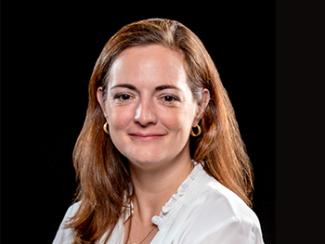
Associate Director
Helen M. Genova, PhD, is the associate director of the Center for Autism Research at Kessler Foundation and director of the Social Cognition and Neuroscience Laboratory. She is also assistant research professor in the Department of Physical Medicine and Rehabilitation at Rutgers New Jersey Medical School. Utilizing both behavioral and neuroimaging methods, Dr. Genova’s research focuses on studying social cognition and emotional processing issues across multiple populations. Dr. Genova plays an important role in pioneering innovative research, applying interventions that target social cognition deficits in autism, multiple sclerosis, and traumatic brain injury, and exploring the assessment and treatment of cognitive fatigue in clinical populations. Since the start of her professional career in 2007, she has successfully obtained grant funding, either as principal investigator or co-investigator, from National Institutes of Health (NIH), National Institute on Disability, Independent Living and Rehabilitation Research (NIDILRR), National Multiple Sclerosis Society, New Jersey Commission on Traumatic Brain Injury Research, ARSEP Foundation, Consortium of Multiple Sclerosis Centers, and Department of Veteran’s Affairs.
Dr. Genova is interested in social cognition, defined as a set of skills required to understand and process the emotions of others. Dr. Genova has applied a number of techniques to the assessment of social cognition including neuropsychological tests, eye-tracking, functional neuroimaging, structural neuroimaging, and virtual reality. Dr. Genova is interested in examining what variables are affected by or predict social cognition deficits, including social isolation, depression, fatigue, and quality of life. She is developing meaningful, accessible, and evidence-based research that provides new interventions and implementations for children, adolescents, and adults on the autism spectrum, with particular focus on the critical transition from adolescence to adulthood. In addition, Dr. Genova has investigated treatments for improving social cognition in adults with multiple sclerosis and traumatic brain injury.
View a more comprehensive listing of publications for Dr. Genova on ResearchGate.